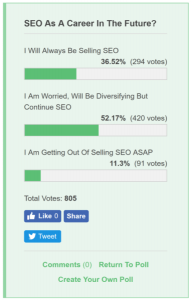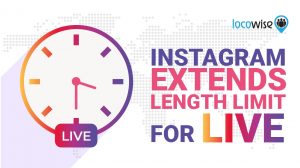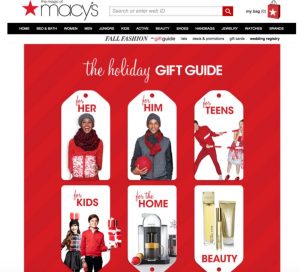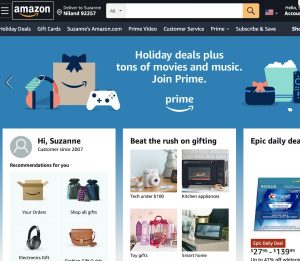 The world of online marketing strategy is full of pitfalls and potential content marketing mistakes. Digital marketing personalization is one of them.
The world of online marketing strategy is full of pitfalls and potential content marketing mistakes. Digital marketing personalization is one of them.
While it’s not practical to create a completely personalized marketing campaign or customer experience for every single individual who passes through your sales pipeline, you can certainly take steps to personalize marketing in a manner that boosts conversion and sales rates.
Buyer personas are key to your customization and personalization efforts. When you segment your prospects by persona and set up parallel marketing campaigns for each, you increase the relevance and appeal of each campaign – and make prospects more likely to respond favorably.
What Are Buyer Personas, Anyway?
We’ve discussed buyer personas before, but the concept is important enough to go over again. Basically, a buyer persona is an archetype – an ideal individual with a certain set of demographic characteristics, personal motivations, product preferences and other attributes.
Savvy companies use buyer persona information to segment their target audiences and develop marketing campaigns that speak directly to the needs, wants and goals of each type of consumer.
It’s important to note that buyer personas can be relatively general – for instance, “female head of household aged 25 to 54″ – or quite specific. While it’s possible to customize and personalize marketing materials for an even narrower audience, many of the tips outlined here assume that buyer personas will form the basis of your online marketing personalization efforts.
1. Use Customized Landing Pages for Each Campaign and Traffic Source
Your digital marketing strategy should include customized landing pages for each inbound campaign and traffic source. These pages need to make sense in the context of the visitor’s motivation.
For instance, a landing page that appears when a user clicks an awareness-oriented display ad for a particular product type shouldn’t be tailored to returning customers. Likewise, landing pages tied to lead-nurturing email campaigns shouldn’t ask visitors to re-enter their email addresses.
Ideally, landing pages should be paired with specific products, services or “silos” with the goal of speaking directly to the campaign that led visitors to them.
2. Send Out Lead-Nurturing Emails Based on Visitor Behavior
To the extent possible, track your prospects’ movements around, and engagements with, your website. Send out lead-nurturing emails and other non-intrusive contacts that take these behaviors into account.
For instance, you might schedule a “We miss you!” email for a previous customer who hasn’t visited your website or purchased anything during the past month.
3. Recommend Additional Products and Services Based on Past Purchases
If you have an e-commerce platform, use visitors’ past purchase data to make recommendations or offer deals based on those purchases.
For instance, you might offer a 20 percent discount on the utensil set that accompanies the outdoor grill a particular customer purchased on their last visit.
4. Use – and Learn From – Personalized Surveys
If you really want to get into the minds of your prospects and current customers, it’s hard to do better than a quick, easy online survey.
Ask one or two questions per survey, offering some sort of sweet deal – such as a free piece of content or discount code – for visitors who complete it.
5. Use Location Data to Your Advantage
This is a great way to drive your online marketing personalization efforts beyond the buyer persona. If you have physical stores or pickup locations, it’s particularly useful for marketing to mobile users.
Simply ask your website visitors or app users permission to track their physical locations. Use this data to provide store-specific deals or opportunistic offers, such as beach towels and sunblock in stores located near the beach.
6. Offer Customized Calculators, Games and Other Interactive Features
In some inbound marketing circles, “gamification” is the way to go. If you can figure out a way to turn everyday lead-generating and lead-nurturing processes into fun, engaging activities for your prospects, you’ll be well on your way to content marketing success.
Depending on the nature of your business, such activities might include a customized calculator, a “choose your own adventure” type of game or a wizard that lets you create your own customized product or service.
7. Reach Out the Old-Fashioned Way
Although some buyers really do want to be left alone and allowed to make purchasing decisions on their own timetables, most appreciate regular contact from the companies they do business with.
In addition to your ongoing lead-nurturing efforts via email marketing, don’t be shy about reaching out directly to current customers and potential prospects. If you have the manpower, schedule regular phone calls or Skype chats to check in on each person and determine what they need from you.
Don’t worry about making a hard sell during these conversations. This type of personalized contact is more about building goodwill and laying the groundwork for future sales.
Learn How to Use Buyer Personas from the Pros
Online marketing personalization doesn’t begin and end with a keen understanding of buyer personas. That said, knowing who your buyers are and what they want to see from your company certainly won’t hurt your digital outreach efforts.
If you can personalize your online marketing efforts with lead-nurturing emails, savvy social media use, customized landing pages and other easy-to-implement tactics, you’ll be in a great position to capture new leads, boost sales and lower your per-lead and per-sale marketing costs.
That’s great news for your online visibility – and your bottom line.
Digital & Social Articles on Business 2 Community
(106)
Report Post







